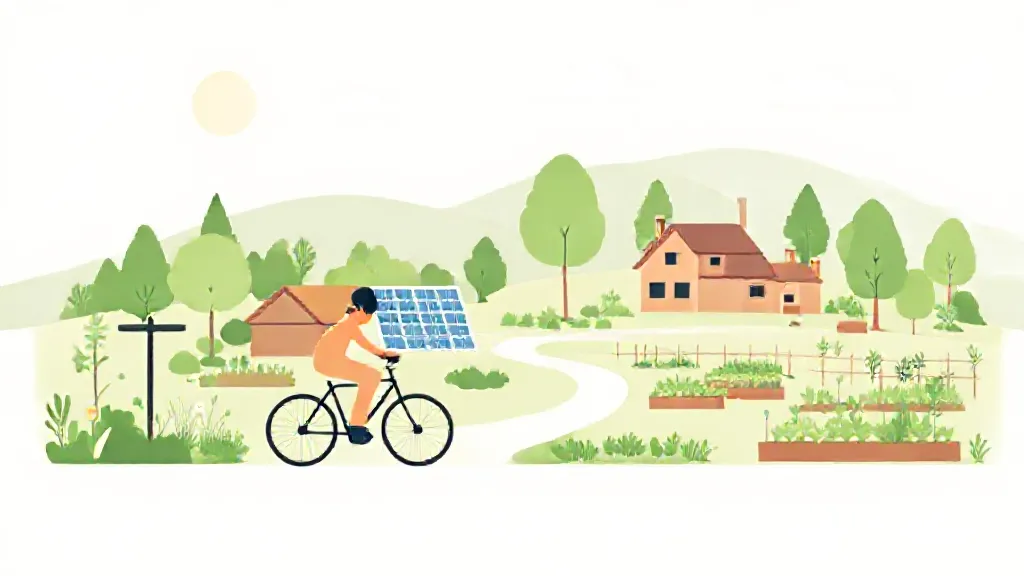Transitioning to a low-impact lifestyle is increasingly vital in the face of climate change and environmental degradation. Individuals can play a significant role in reducing their carbon footprint and promoting sustainability through conscious choices in daily living. This article will explore practical steps individuals can take to embrace a low-impact lifestyle, emphasizing the importance of informed decision-making and community involvement.
Understanding Low-Impact Living
Low-impact living refers to a lifestyle that minimizes environmental harm, focusing on reducing waste, conserving energy, and promoting sustainable practices. This can involve various aspects of life, including transportation, food consumption, waste management, and energy use. The core principle is to live in a way that meets personal needs without compromising the ability of future generations to meet theirs.
Understanding the implications of our lifestyle choices is the first step toward meaningful change.
Transportation Choices That Matter
One of the most significant contributors to an individual’s carbon footprint is transportation. Opting for public transit, carpooling, biking, or walking instead of driving alone can drastically reduce greenhouse gas emissions.
For longer distances, consider using trains or buses instead of planes, as air travel has a substantial environmental impact. Additionally, if a car is necessary, choosing a fuel-efficient or electric vehicle can further lessen one’s impact on the environment.
Food Consumption and Its Impact
The food we consume has a profound effect on the environment.
Transitioning to a low-impact lifestyle includes making informed choices about food sources. Prioritizing locally-sourced, organic, and seasonal produce can reduce the carbon footprint associated with food transport and pesticide use. Furthermore, reducing meat and dairy consumption can significantly lower greenhouse gas emissions, as livestock farming is a major contributor to climate change.
Adopting plant-based meals or participating in community-supported agriculture (CSA) programs are excellent ways to embrace sustainable eating habits.
Waste Reduction Strategies
Waste management is another critical area where individuals can make a difference. Implementing the principles of reduce, reuse, and recycle can help minimize waste.
Simple actions like carrying reusable bags, using refillable water bottles, and composting organic waste can significantly cut down on landfill contributions. Additionally, being mindful of packaging when shopping and opting for products with minimal or recyclable packaging can further enhance waste reduction efforts.
Energy Efficiency at Home
Energy consumption in households contributes significantly to overall carbon emissions.
Transitioning to a low-impact lifestyle can involve making energy-efficient choices at home, such as using LED lighting, investing in energy-efficient appliances, and utilizing smart home technologies to monitor and reduce energy use. Furthermore, incorporating renewable energy sources, like solar panels, can dramatically decrease reliance on fossil fuels and contribute to a cleaner environment.
Community Involvement and Advocacy
Individual actions are powerful, but collective efforts can amplify impact.
Engaging with local communities to promote sustainability initiatives can foster a culture of environmental stewardship. This can include participating in local clean-up events, advocating for green policies, or supporting local businesses that prioritize sustainability. By working together, communities can create a significant ripple effect, inspiring others to adopt low-impact practices.
Education and Continuous Learning
Transitioning to a low-impact lifestyle is an ongoing journey that requires education and adaptability. Individuals should seek resources to expand their knowledge about sustainable practices, environmental issues, and innovative solutions. Books, documentaries, online courses, and community workshops can provide valuable insights.
Staying informed about environmental challenges and solutions empowers individuals to make better choices and encourage others to do the same.
The Importance of Mindfulness
Ultimately, transitioning to a low-impact lifestyle is about mindfulness—being aware of the consequences of our choices and striving for a balance that benefits both ourselves and the planet. By adopting a mindset focused on sustainability, individuals can inspire change not only in their lives but also in their communities.
This shift in perspective can lead to more profound societal changes, promoting a healthier planet for future generations.
